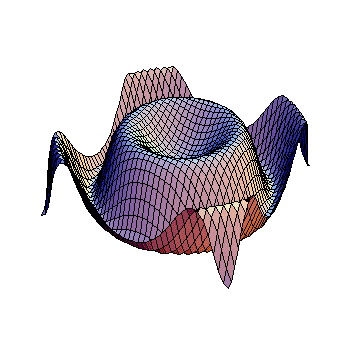x < 0 to be possible zeros for #f(x)=2x^3+9x^2+19x+15#
Let we test
x=1,
#f(-1) = 2(-1)^3+9(-1)^2+19(-1)+15#
#f(-1) = -2+9-19+15 = 3#
x=-2,
#f(-1) = 2(-2)^3+9(-2)^2+19(-2)+15#
#f(-1) = -16+36-38+15 = -3#
one of it zeros lying within -2 to -1. let we test #x=-1.5#
#f(-1.5) = 2(-1.5)^3+9(-1.5)^2+19(-1.5)+15#
#f(-1.5) = 2(-3.375)+9(2.25)+19(-1.5)+15#
#f(-1.5) =-6.75+20.25-28.5+15#
#f(-1.5) =0#
therefore #x=-1.5 or -3/2# is one of zeros for the equation.
By using synthetic division, we get
#f(x)=2x^3+9x^2+19x+15 = (x-3/2)(2x^2+6x+10)#
#f(x)=((2x+3)/cancel2)cancel2(x^2+3x+5)#
#f(x)=(2x+3)(x^2+3x+5)#
Let consider #x^2+3x+5,#by completing square,
#x^2+3x+5=(x+3/2)^2-(3/2)^2+5#
#=(x+3/2)^2-9/4+20/4#
#=(x+3/2)^2+11/4#
#(x+3/2)^2=-11/4#
#(x+3/2)^2=11/4i^2#
#x+3/2=+-sqrt((11/4)i^2)#
#x=-3/2+-sqrt11/2i#
#x=(-3+-sqrt11)/2i#
#f(x)=2x^3+9x^2+19x+15=(2x+3)(x+(3+sqrt11)/2i)(x+(3-sqrt11)/2i)#

